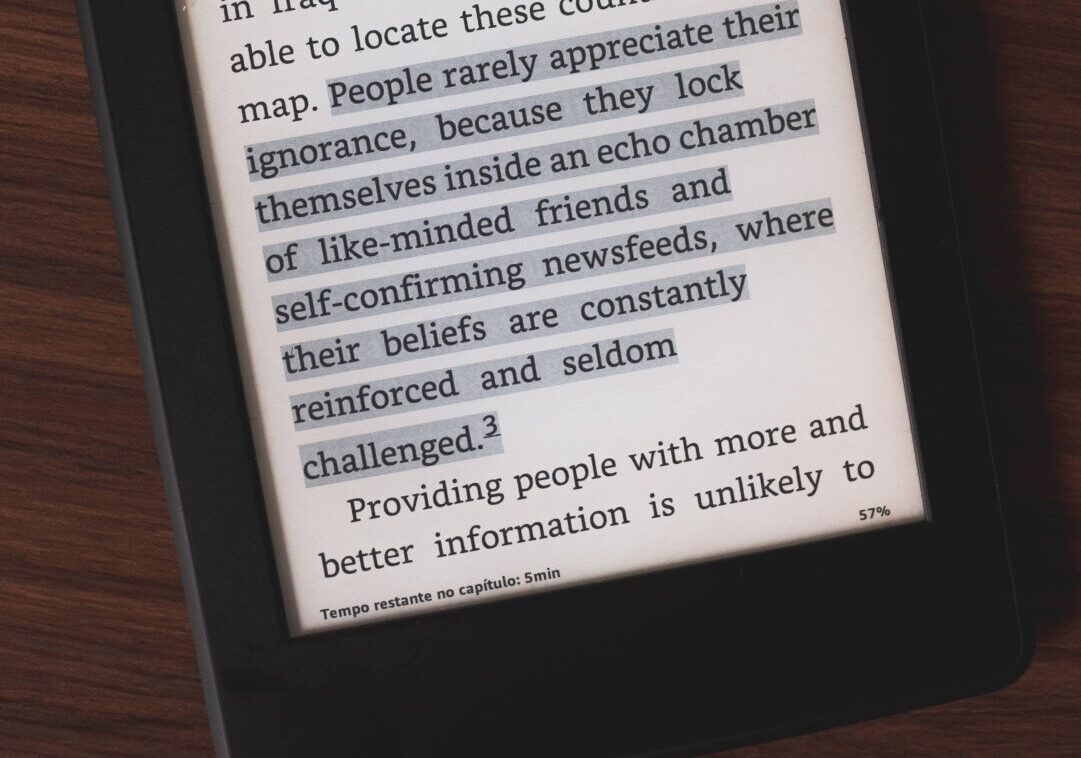Why Amazon’s new book policy should worry us all
For many, Amazon is a good service that makes buying books easy and quick. But what happens if the company decides to remove certain books from its shelves? Amazon has started removing titles based on its new policy on offensive material, and it’s something that should worry us all.
At the end of February, Amazon removed When Harry Became Sally: Responding to the Transgender Movement from its main web store, its Kindle servers and its audiobook line-up with no explanation. Speaking to Just the News, the book’s author Ryan Anderson said that he’d received no communication from Amazon about the ban. When the news organisation reached out to Amazon, they were directed to a page outlining their ‘Content Guideline for Books’, with a focus on the section labelled ‘Offensive Content’.
It appears that the recent update is the addition of ‘hate speech’ to their guidelines on book platforming, and the ramping up on censorship of the ‘offensive’
Amazon states that they “don’t sell certain content including content that we determine is hate speech, promotes the abuse or sexual exploitation of children, contains pornography, glorifies rape or paedophilia, advocates terrorism, or other material we deem inappropriate or offensive”.
According to the report: “A review of those policies suggests that sometime in the last few months Amazon made a major change to the ways in which it moderates book content on its servers, imposing a much stricter standard on books than it had previously done.” It appears that the recent update is the addition of ‘hate speech’ to their guidelines on book platforming, and the ramping up on censorship of the ‘offensive’.
It bears repeating that the best way to deal with any ‘controversial’ book is to read it and to debate its ideas – frankly, our society needs more dialogue to deal with some of our divides
Abigail Shrier, whose own book Irreversible Damage faced ban calls, has compiled an interesting Twitter thread on the story which explains just why this move is so important. She notes that every book worth reading could be characterised as inappropriate or offensive to someone, meaning that the criteria is necessarily subject to the ideological stance of the censor. As she explains: “Books that surprise and inform and challenge us to see things differently are usually offensive to someone.”
Shrier also picks out some holes in Amazon’s reasoning – most importantly, that there are many books on the platform that fall foul of these rules, but continue to sell because they’re more inclined to Amazon’s ideology. She highlights a factual book called Beyond Magenta, which sees a six-year-old describe their experiences performing oral sex on adults – if that sounds iffy to you, you’re not the only one, but Amazon doesn’t have an issue. You can still buy The Anarchist Cookbook, which explains how to make explosives and drugs, too – that all the books vanishing from Amazon’s shelves are conservative ones are, we’re told, entirely coincidental.
The big issue, though, is Amazon’s scale. The company’s share of the book market is giant – it accounts for 83% of all US ebook sales, and at least 50% of all physical books. It is the world’s largest bookseller, meaning it can essentially make books disappear for all readers, and its size means some books may not even be published in the first place if Amazon won’t sell them. Normally, a conservative response to this issue is simple – go buy the book elsewhere – but Amazon has such clout, the book may never reach the publication stage at all.
It bears repeating that the best way to deal with any ‘controversial’ book is to read it and to debate its ideas – frankly, our society needs more dialogue to deal with some of our divides. It may be the case that you don’t support books exploring certain topics, and that’s fair enough – you’re under no obligation to read them. But what happens when your ideas become taboo? It should not be the role of anonymous figures in the backroom of Amazon to decide what literature we’re allowed to access. I don’t trust Jeff Bezos to decide what books should exist, and he shouldn’t have that power. Fight with your money – buy books elsewhere, because that’s the only way we can respond.
At the moment, this is just about a couple of books, but if we don’t take a stand now, the list of banned material will only grow. Amazon should not have the power to decide what we can read and, as a result, which ideas should circulate in a society. The company is engaging in a form of virtual book burning, and that’s terrifying. I’m reminded of Ray Bradbury’s Fahrenheit 451, and how firemen destroy literature to censor knowledge, something the author described in a 1994 interview as “thought control and freedom of speech control”. Amazon has started the fire – the question now is whether we will fight to extinguish it.

Comments (1)
I’m glad I was able to see and read this article! I appreciate that this article was written. I now know NEVER to use Amazon again for anything I purchase! Jeff Besos and his company are toxic and unethical. Sadly many U.S. companies are unethical in their business practices. These companies need to be ignored and people need to stop using their Services. More stories need to be published on a wider scale to ensure consumers are cognizant of these unethical business practices and that these companies are publicly exposed for their unethical practices!